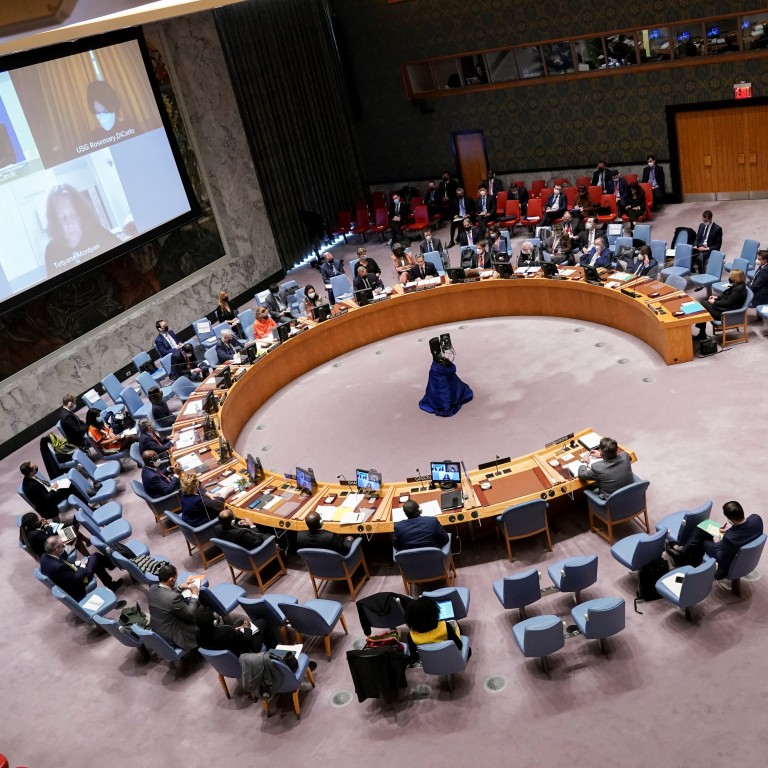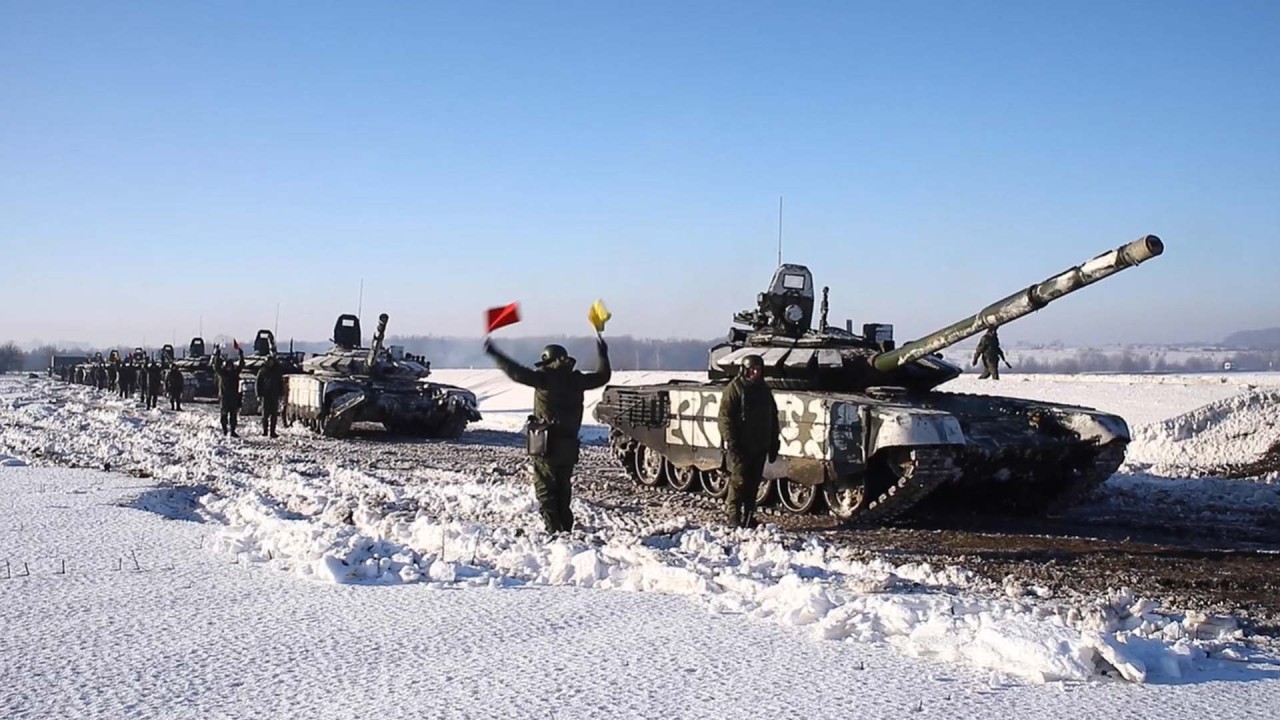
China blames US-led Nato for tensions on Russian border with Ukraine
- ‘Nato enlargement is an issue that cannot be overlooked’, China’s permanent UN envoy tells Security Council
- China supports all efforts conducive to easing the tensions, Zhang Jun tells meeting on Ukraine situation
“Everything happens for a reason. Nato enlargement is an issue that cannot be overlooked when dealing with the current tensions related to Ukraine,” Zhang told a Security Council meeting on the situation in the Eastern European nation.
“Nato’s continuous expansion in the wake of the Cold War runs counter to the trend of our times, that is to maintain common security,” he said, according to a readout from the Chinese mission.
“One country’s security cannot be at the expense of the security of others. By the same token, regional security should not rely on muscling up or even expanding military blocs.”

Repeated talks to defuse tensions have failed, with the US continuing to warn of imminent invasion, and rejecting Russian claims of having moved some troops back.
Addressing the UN Security Council, Zhang said: “China supports all efforts conducive to easing the tensions, and notes the recent diplomatic engagement between Russia and France, Germany and other European countries at the leaders’ level.
“A negotiated, balanced, effective and sustainable European security mechanism will serve as a solid foundation for lasting peace and stability across Europe. We trust that European countries will take decisions with strategic autonomy in line with their own interests,” he added, referring to the European aim of being viewed as operating independently across all fronts, including in defence and diplomacy.

This has been a key concern for Russia in the stand-off with the US and its allies over Ukraine, with Moscow calling for security guarantees including a ban on Nato’s further expansion and a firm pledge that Ukraine would never be a member.
During ongoing diplomatic efforts to de-escalate tensions at the Ukraine-Russia border, German Chancellor Olaf Scholz said there were currently no plans to admit Ukraine to Western alliances such as Nato.
Meanwhile, the US has demanded Russia pull back some 130,000 troops it says have been massed near the border with Ukraine. Washington said it was hoping for a peaceful resolution, but stood ready to impose harsh economic sanctions if Russia invaded.


